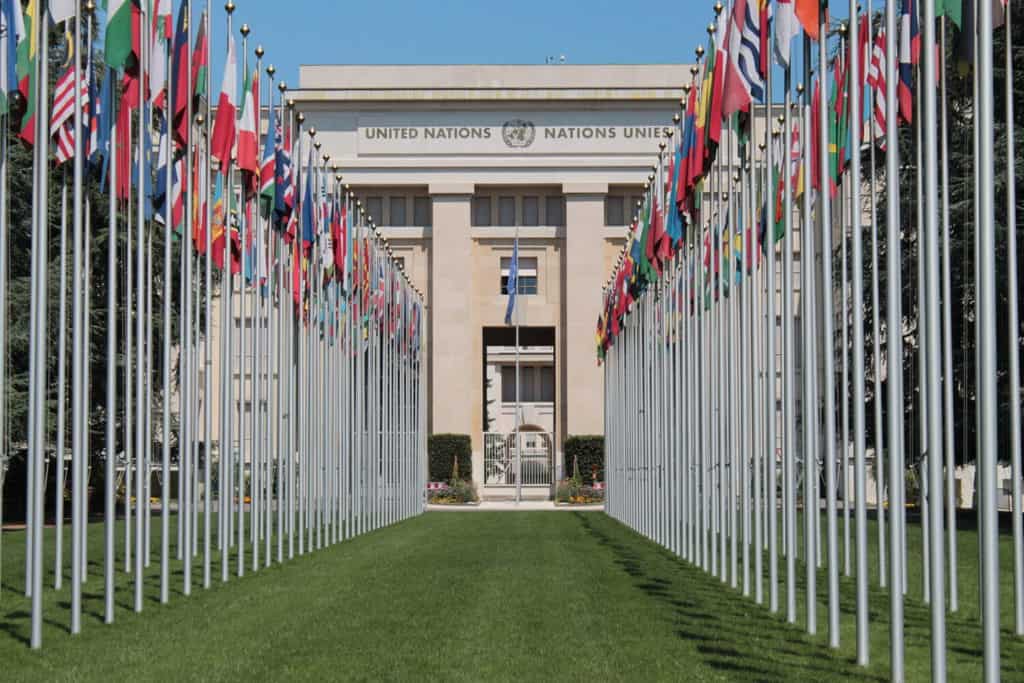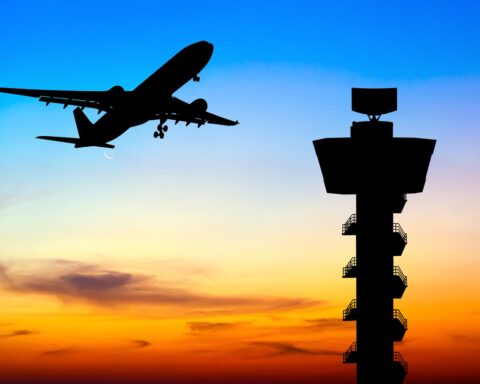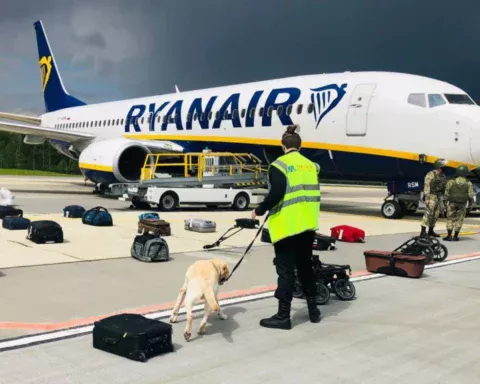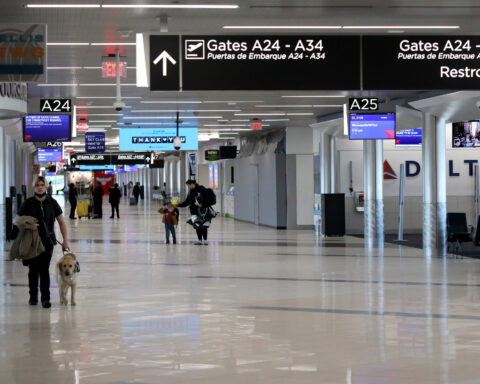The ICAO Secretariat consists of five bureaus: the Air Navigation Bureau, the Air Transport Bureau, the Technical Co-operation Bureau, the Legal Affairs and External Relations Bureau, and the Bureau of Administration and Services. The Bureau of Administration and Services (ADB) ensures the Organization can undertake all of its mandates effectively and efficiently throughout the pandemic response, and as it transitions to the next normal.A results-based management and performance-oriented organizational culture is at the heart of ADB’s approach. It is key to the Organization meeting the needs of Member States, industry stakeholders, and the aviation community. The Bureau performs its functions through the provision of high-quality human resources, business acumen, multilingual support, event and venue management, and revenue generating activites.
Q: From ADB’s perspective, how has the pandemic changed the way States cooperate through ICAO?
A: The COVID-19 pandemic has and continue to require ICAO to make adjustments to its operations in Montreal and at its Regional Offices. ICAO is guided by measures as recommended by the World Health Organization, and COVID-19 related issuances and guidelines by the Central Executive Board, Human Resources Network for the United Nations Common System, as well as advisories of the respective host country where ICAO has a presence.
While there are restrictions in place at the duty station, only critical and essential functions are carried out onsite and staff who are required to work onsite must observe all measures, such as keeping a safe distance, hands sanitizing and wearing face masks at all times. It is for Managers to identify the staff and functions that are to be carried out on site (i.e. they must be critical and essential).
It is anticipated that there will be several tier levels. ICAO will determine the number of staff to return to work for the various tiers, which would increase progressively. Ideally, the pandemic would be over in the next few months, when all staff could return to work and be subject to an ongoing study on the future of work.
The pandemic has caused organizations to leapfrog into the future, where it has become clear that some positions may have to be redefined based on the experience gained over the past year and a half, and explore possibilities and cost-effectiveness for some functions to be carried permanently off-site. At ICAO, virtual meetings created extend working hours expectations from Member States, leading to almost around-the-clock virtual meeting meetings planned on weekends or during the night.
Q: How has ICAO’s approach to information and communications technologies changed to address this?
A: Prior to Covid-19, ICAO’s remote workers were mainly business travelers and a very small number of others who did so on an exceptional basis. Moreover, many ICAO processes were still paper-based and required manual signature and paper copies. Most of ICAO’s workforce had desktop computers.
The confinement was a paradigm change and forced ICAO to undertake a digital transformation where the entire workforce became remote. It meant ensuring the business performance of the back-office system was as efficient at the office as it was while working remotely. The internet and the network bandwidth had to be revised, and secured network access, such as VPN, became a critical service. ICT revised its endpoint strategy and moved from workstations to mobile computers to ensure mobility and business performance to ensure business continuity.
ICAO’s ICT and Information Security (InfoSec) services helped embrace the new ways of working by adopting remote working tools and technologies, enabling online meetings both for Secretariat and Council, including providing translation into six languages for the Council meetings.
The COVID-19 pandemic raised the Information Security risks from clear on-premises to virtual premises, from data protected by ICAO technical infrastructure to data accessible in home offices. Although these risks were assessed before the pandemic and their controls were already part of the Information Security Roadmap, InfoSec updated the priorities of the controls/initiatives on both technological and human sides to respond to the urgency of this situation.
Q: Are these changes part of your longer-term vision for ICT at ICAO?
A: Yes, this new way of working will remain for the future and there will be more and more demand on ICT and InfoSec to embrace a hybrid model of working.
The subjects of these changes are already part of the long-term vision for the Organization’s Information Security. They are part of the Information Security Roadmap 2020-2022 as presented to the sessions of the Council since February 2020. Through the journey of improving the Organization’s maturity in Information Security, we are taking steps into managing the cyber risks, promoting resilience, and thus, building trust among all parties.
Q: Has the membership of the UN system helped ICAO to respond to the pandemic?
A: In the first instance, the Chief Executives Board and the UN Secretariat issued Administrative Guidelines on the Framework for the management of staff members in the UN common system, in the context of staff working from alternate locations within or outside the duty station, which were used to model guidelines issued for ICAO staff.
The pandemic was also an opportunity for UN conference services providers to work together and cooperate with best practices, through the Task Force on Virtual Meetings, and joint procurement. For example, membership of the UN System helped ICT to piggyback off UN LTA to procure Zoom licenses initially Benefits are expected to go beyond the pandemic and virtual meetings as communication channels have been strengthened.
To give another example, ICAO’s InfoSec is part of the United Nations Information Security Specialized Group (UNISSIG). Its active participation within this group contributes to the assessment of risk and proposing approaches for mitigation; and assisting other related groups within the U.N. community, for example, working on Privacy Protection issues with the United Nations Privacy Policy Group (UNPPG).
ADB also participates in the International Annual Meeting on Language Arrangements, Documentation and Publications Task Force (IAMLADP), which recently provided a briefing on lessons learned from electronic publishing. This provided valuable insights into digital and electronic options for sharing intellectual property from other UN agencies.
Helping the rest of the UN system has also been a key priority for ADB throughout the pandemic. One very concrete example here is the fact that the ICAO print shop and distribution facilities were able to remain open because the layout of thepremises could accommodate social distancing requirements and maintain a safe work environment for staff. As such, ICAO was able to provide emergency printing services to other parts of the UN system, including UN New York.
Q: What role do ICAO events and publications play in supporting our operations and objectives?
A: As the result of ICAO in-person events being cancelled, the Organization moved to digital communications such as ICAO TV and UnitingAviation.com. In addition, the ICAO eLibrary platform was launched; this platform provides public access to ICAO regulatory documentation.
The sale and distribution of ICAO publications was maintained throughout the pandemic, ensuring important safety publications such as the Technical Instructions for Dangerous Goods, were made available to stakeholders across the industry.
ICAO TV and UnitingAviation.com have become central tools for communicating ICAO’s vision and initiatives related to the Strategic Objectives. These platforms replaced our older print-based periodicals and in conjunction with ICAO’s 550K plus followers on social media channels (Facebook, LinkedIn, Twitter, Instagram), reach a much broader and engaged audience. ICAO TV has been critical in relaying on-demand information related to COVID-19 through the CART webinars.
The number of meetings has exploded. Face-to-face meetings have been replaced by virtual meetings, and some require much more resources. For instance, a Council or ANC meeting used to require one dedicated technician, its virtual format with hub interpretation requires five technicians, for the same meeting. ANC and Council session durations have been extended as well. There is a common misperception that virtual meetings do not require conference services support which is actually the opposite, it required much more resources. VEM had to refocus its capacity on ICAO official meetings (approved by the Council on the CWP).
Q: How do you see the future for ICAO events?
A: There is consensus that face-to-face meetings will be replaced by hybrid meetings as a standard. Virtual meetings are here to stay. Over all the number of meetings, especially at the collaborative level will continue to increase thanks to technology adoption and equipment/infrastructure investments. The main challenge will be maintaining a homogeneous environment and portfolio of secured solutions to ensure a satisfactory risk management. ICAO is committed to maintain compliance to industry and UN best practices in the interest of the Organization, to the highest standards with the resources available
Q: In what ways does ICAO’s approach to human resources internally reflect our approach to the development of human resources in the aviation sector as a whole?
A: Human resources at ICAO promotes gender balance and the selection of staff without distinction to race, sex or religion or any discrimination of any disability. Dignity, civility and respect for diversity are also promoted through training and the ICAO Framework on Ethics. In this respect, ICAO staff members enjoy and must respect human rights as presented in the Universal Declaration of Human Rights adopted and proclaimed by the United Nations in 1948.









